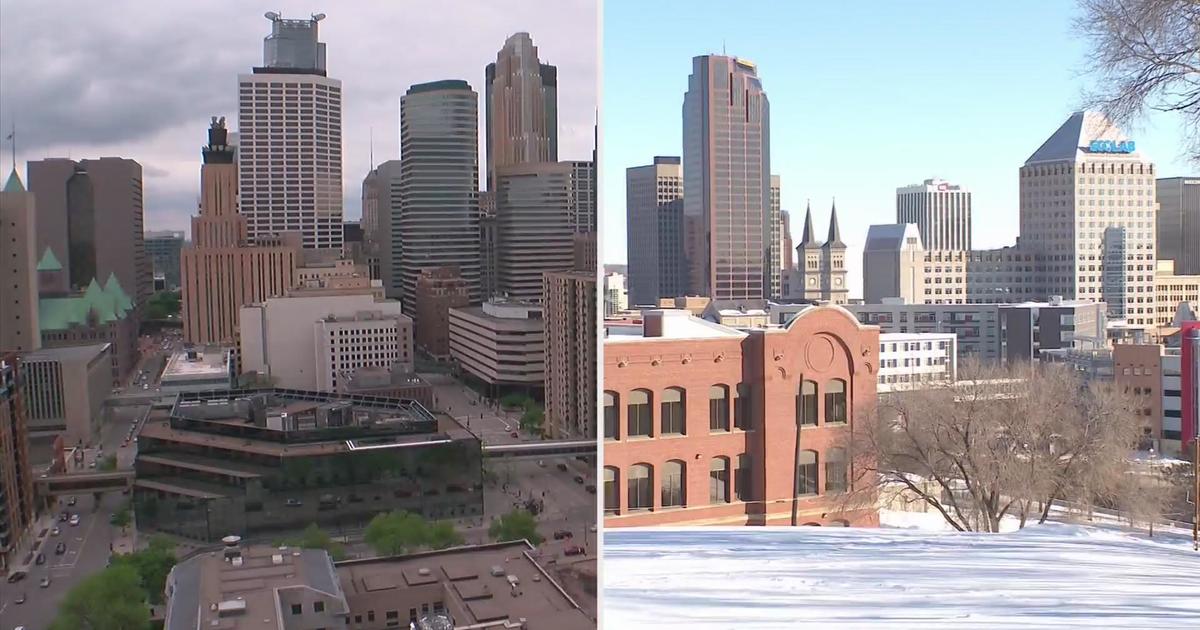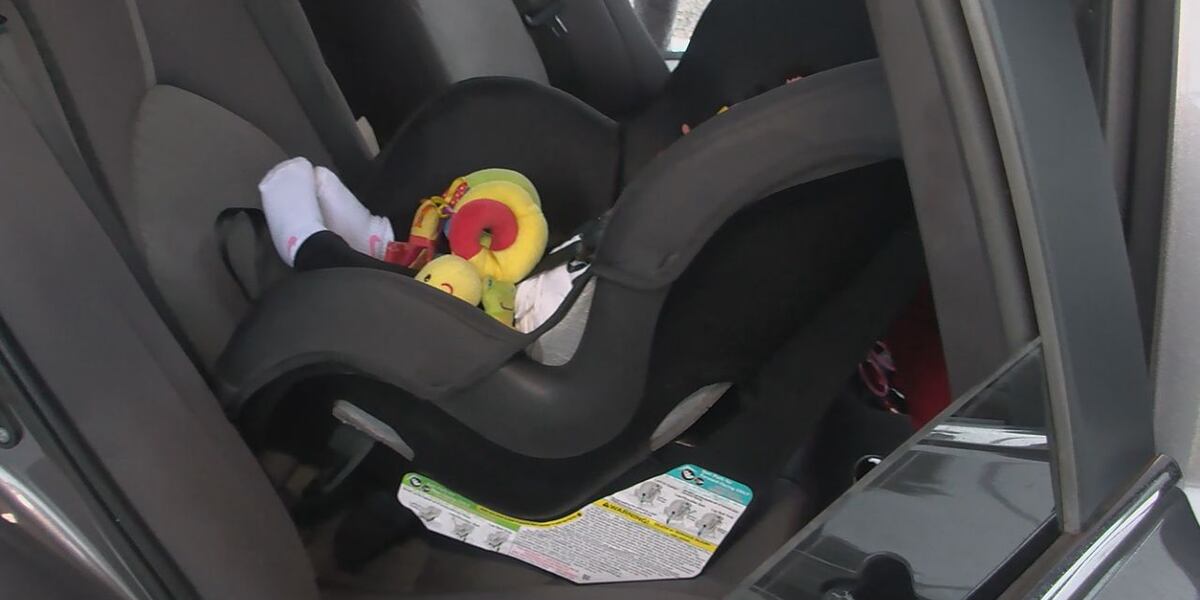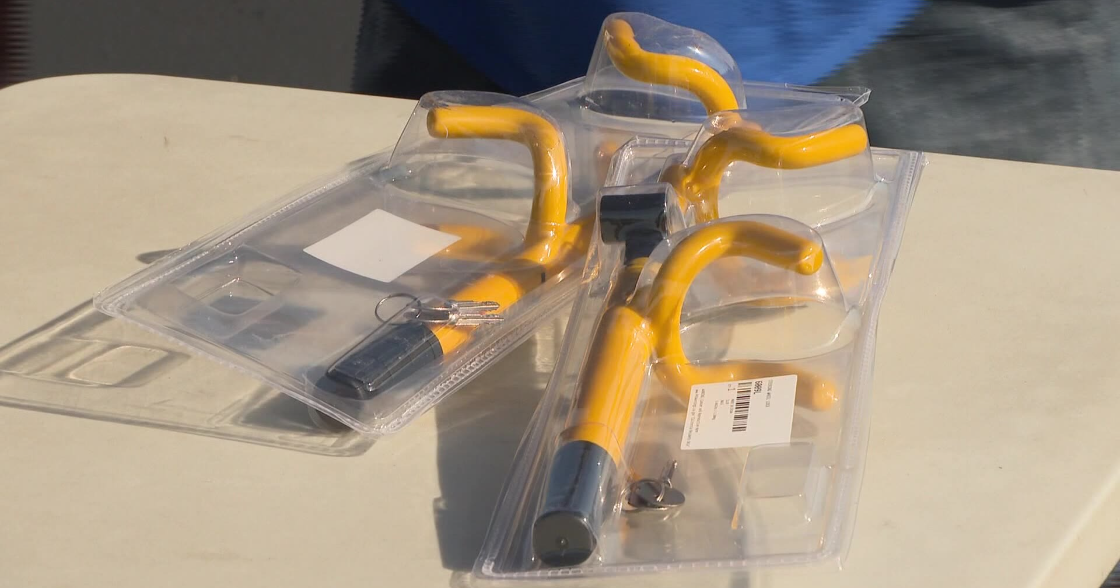Minneapolis, MN
Man killed by car thief in Minneapolis crash died in his prized Chevy Impala

Watch CBS News
Be the first to know
Get browser notifications for breaking news, live events, and exclusive reporting.

Minneapolis, MN
Whither Pig’s Eye? Here’s how the cities of Minneapolis and St. Paul got their names.

On the banks of the Mighty Mississippi River roughly 180 years ago, two burgeoning towns in Minnesota, then just a territory in the U.S., were searching for an identity. The Twin Cities each have a unique personality, pace, and history. But in the mid-1800s, both were still searching for what to call their communities.
“The history of Minneapolis is more complicated than we would expect, and just about everything we know about the history of the name St. Paul is wrong,” said Bill Convery, Director of Research for the Minnesota Historical Society.
What other names were suggested besides Minneapolis?
“There was no consensus on what to call it,” Convery said. One idea was All Saints, an effort to sound better than St. Paul or St. Anthony. Technically, a name was officially picked before Minneapolis.
“The Hennepin County commissioners officially named the community Albion,” said Convery.
Albion is the old name for England, and Convery said the idea was to honor settlers who moved to the area from New England.
According to Convery, credit for the creation of the name Minneapolis goes to a schoolteacher named Charles Hoag and a newspaper editor named George Bowman. He says “they jointly share credit for coming up with this hybrid name.” The first part of the name comes from Minnehaha, the Dakota word for waterfall. The second part — the “polis” part — comes from the Greek word for city. Hoag wrote a letter to Bowman suggesting the name. Bowman’s influence with the newspaper was key.
“(Bowman) really ran with it and promoted it heavily and as a result people ignored the name of Albion and really drifted toward this new name of Minneapolis,” said Convery.
St. Paul’s name origin is more straightforward, outside of the myth attached to it. Convery said it begins with a “decrepit old fur trader” named Pierre Parrant. His nickname was Pig’s Eye because he was blind in one eye. Legend has it that Parrant opened a pub bearing his nickname, then lent his nickname to the area as people settled nearby. Convery said people used the name of Parrant’s pub as part of their address to send and receive mail.
“The truth is Pig’s Eye and St. Paul were two entirely different communities,” he said.
In the early 1840s, a Catholic Priest named Luicien Galtier built the area’s first chapel and established its parish, naming it St. Paul. The name earned the respect of settlers.
“It was a name that was very compelling for the French and the Irish catholic immigrants who very quickly populated St. Paul the 1850s, so they embraced that name,” said Convery.
St. Paul’s name became official in 1841, while Minneapolis was made official in 1852 — two communities put on the map and forever connected.
“I think what’s true for both Minneapolis and Saint Paul is that these were popular choices. These were choices of the people,” said Convery.
Although Pig’s Eye didn’t become the official city name, there’s still a park, a lake and many businesses honoring the unique moniker in St. Paul.
Minneapolis, MN
Celebration of life held for Harper Moyski, 10, on Sunday in Minneapolis

(KSTP) – A celebration of life was held Sunday for 10-year-old Harper Lillian Moyski, one of two children killed in the Aug. 27 mass shooting at Annunciation Church in Minneapolis.
Harper’s family hosted a celebration of life service at the Lake Harriet Bandshell in Minneapolis.
In an obituary shared on Saturday, Harper was described by her loved ones as a bold and inquisitive person who “cared deeply about animals, people, and the planet.”
Harper had dreams of one day becoming a veterinarian, and she loved to travel and explore the world with her family, setting a goal of visiting all 63 U.S. National Parks before she graduated from college.

At the Sunday service, parents Mike and Jackie Moyski spoke to a sea of family, friends, and strangers. They began by thanking the community for helping to light a path forward and for packing the Lake Harriet Bandshell to celebrate Harper’s life.
“There’s just so much love and support lighting our path that we haven’t felt lost. Shattered and heartbroken but not lost,” Jackie Moyski said.
Harper was a true original, “sharp, curious, funny and fierce,” she continued.
Her daughter was herself, and there was no watering that down, Jackie Moyski said, adding that Harper’s imagination was big enough to build a whole world in one afternoon.
“One of our favorite things she used to do was set up a little store in her room… it was adorable. She was fully committed to running a profitable business, though, and did not give us any discounts,” Jackie Moyski shared.
“And, she’d change the price based on how nice you were to her,” she continued with a laugh.
“She just packed so much joy and imagination into her short 10 years, and thank God, thank God she made it all count.”
The service was followed by music, dancing, and an array of food trucks providing lunch free of charge. That was what Harper would’ve wanted, said Father Tom Hurley of Old St. Patrick’s Church in Chicago, leading the service.
21 other people, including 18 children, were injured in the shooting that took Harper’s and 8-year-old Fletcher Merkel’s lives.
Ways to help victims of the Annunciation Church mass shooting
Minneapolis, MN
Farm Aid 40 to Move Forward in Minneapolis Following Labor Strike Agreement: ‘We Are Thrilled’

Organizers of Farm Aid 40 have confirmed that this year’s festival will proceed as planned at the University of Minnesota, following a resolution between the university’s administration and striking workers.
On Saturday (Sept. 13), Farm Aid organizers announced on social media that the annual event will be held at Minneapolis’ Huntington Bank Stadium on Sept. 20, after the university and Teamsters Local 320 reached a labor agreement.
“Farm Aid is grateful that the University of Minnesota and Teamsters Local 320 have reached an agreement,” organizers wrote on Instagram. “We are thrilled to confirm that Farm Aid 40 will go forward in Minneapolis as planned.”
They continued, “For four decades, Farm Aid has stood with farmers and workers. Today’s agreement is a reminder of what can be achieved when people come together in the spirit of fairness and solidarity.”
The 2025 edition of Farm Aid — marking the festival’s 40th anniversary — will feature headliners Willie Nelson, Neil Young, John Mellencamp, Dave Matthews, Kenny Chesney, Margo Price and Billy Strings, among others. The event is expected to draw a crowd of approximately 50,000 fans.
“We look forward to celebrating that spirit on September 20 — alongside farmers, workers, advocates, artists and fans — in a day of music and community that honors this shared history,” the statement concluded.
The labor dispute had cast uncertainty over the event in recent weeks. On Friday (Sept. 12), Farm Aid revealed that Nelson, the festival’s co-founder and president, had personally spoken with Minnesota Governor Tim Walz in an effort to help resolve the situation.
“I spoke with @mngovernor, and I’m grateful that he understands what’s at stake for farmers and Farm Aid,” Nelson said in a statement on Instagram. “His involvement is very appreciated. We both know that, ultimately, it’s up to the University to do the right thing, and soon, so that Farm Aid 40 can go forward.”
Farm Aid first announced the location for its 40th anniversary concert in May, naming the University of Minnesota as host. But on Sept. 4, members of Teamsters Local 320 — which represents public sector employees including custodial, maintenance, food service and sanitation staff — voted to reject a proposed contract extension. The union went on strike days later.
Crews were set to begin building the festival infrastructure on Sept. 12. Prior to the agreement, organizers acknowledged the difficulty of relocating the event at such a late stage.
“It is critical to understand that if Farm Aid 40 is forced to move or cancel, the financial impact could be devastating,” organizers said in a previous statement to Billboard. “The expenses already incurred to bring this historic event to Minnesota may well threaten the survival of our organization after four decades of service to family farmers.”
“We urge the University of Minnesota to settle this contract quickly so that Farm Aid 40 can proceed as intended — to celebrate four decades of farmers, music, and solidarity. The world is watching, and together we can make sure this anniversary is remembered for unity, not division.”
Since being founded in 1985, Farm Aid has raised more than $85 million “to promote a strong and resilient family farm system of agriculture,” according to its website.
See Farm Aid’s statement about moving forward in Minneapolis on Instagram below.
-

 Finance5 days ago
Finance5 days agoReimagining Finance: Derek Kudsee on Coda’s AI-Powered Future
-

 Business1 week ago
Business1 week agoHow Nexstar’s Proposed TV Merger Is Tied to Jimmy Kimmel’s Suspension
-
North Dakota5 days ago
Board approves Brent Sanford as new ‘commissioner’ of North Dakota University System
-
World1 week ago
Russian jets enter Estonia's airspace in latest test for NATO
-

 Crypto4 days ago
Crypto4 days agoTexas brothers charged in cryptocurrency kidnapping, robbery in MN
-

 World4 days ago
World4 days agoSyria’s new president takes center stage at UNGA as concerns linger over terrorist past
-

 Technology4 days ago
Technology4 days agoThese earbuds include a tiny wired microphone you can hold
-

 Culture4 days ago
Culture4 days agoTest Your Memory of These Classic Books for Young Readers




:quality(70)/cloudfront-us-east-1.images.arcpublishing.com/cmg/VG27VYWZBZCNFMIADVWPWHXWNM.jpg)
:quality(70)/cloudfront-us-east-1.images.arcpublishing.com/cmg/KQCVKOWPFZXWQEGYC25SRBLQBY.jpg)














